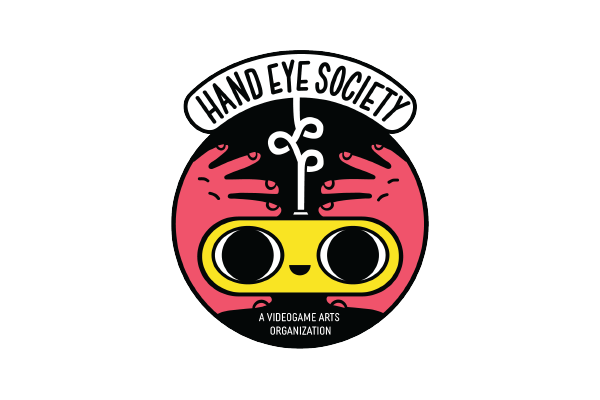
[Spotlight Game] Analogue: A Hate Story
As we announced in May, Hand Eye Society membership now includes a free Toronto game every month. Last month our Spotlight Game was Guacamelee, this month it’s Christine Love’s Analogue: A Hate Story.
Find out about membership & support the videogame arts for the price of a craft beer! All new signups before July 15th will receive a Steam key for Analogue: A Hate Story.
We are also pleased to publish for the first time a thoughtful (non-spoilery) essay on the game by local writer Filipe Salgado (Killscreen).

A cliché to remember: Men are honoured, women are abased.
I know this setup. I’ve played it before: I am a deep space scavenger assigned to explore an abandoned ship and discover what happened. But instead of killing countless aliens and listening to the same ‘pew pew’ sound effects, I’m reading through the diaries of the ship’s inhabitants. Instead of blasting my way through forgettable sci-fi hallways, I’m having conversations with the ship’s timid AI about what the seasons are like. In this epic space opera backdrop, I’m reading intimate scenes of newlywed couples, of dysfunctional families, of arranged marriages. These are the contradictions and juxtapositions that make up Analogue: A Hate Story.
 Designer Christine Love knows how to play with form and expectation: Analogue is a visual novel, a genre usually more interested in women as prizes and pin-ups for the player, that’s feminist. Her earlier game, Digital: A Love Story, was a halcyon romance set in the ‘80s told through a cold, lonely faux-Amiga desktop. No game has ever made the screeching wail of dial up modem sound so lonely. After that, Love made Don’t Take it Personally Babe, It Just Ain’t Your Story, set in the future about a high school teacher with the ability to hack into his student’s social media accounts. Notifications pop up in the middle of conversations with his students, and you scour through inboxes, wading through teen drama. Depending on how old you are, the way the kids in the game navigate these new social frontiers can seem either totally horrifying or 100% normal. There we have those contradictions again: how technology draws us together, and how technology tears us apart.
Designer Christine Love knows how to play with form and expectation: Analogue is a visual novel, a genre usually more interested in women as prizes and pin-ups for the player, that’s feminist. Her earlier game, Digital: A Love Story, was a halcyon romance set in the ‘80s told through a cold, lonely faux-Amiga desktop. No game has ever made the screeching wail of dial up modem sound so lonely. After that, Love made Don’t Take it Personally Babe, It Just Ain’t Your Story, set in the future about a high school teacher with the ability to hack into his student’s social media accounts. Notifications pop up in the middle of conversations with his students, and you scour through inboxes, wading through teen drama. Depending on how old you are, the way the kids in the game navigate these new social frontiers can seem either totally horrifying or 100% normal. There we have those contradictions again: how technology draws us together, and how technology tears us apart.
Analogue isn’t as obsessed with where we’re going, but how we got to here. There’s the player, as somebody in the far future, trying to figure out what happened to this floating relic. There’s the mystery of why the ship’s inhabitants have reverted to medieval feudalism (which Love based on the Korean Joseon dynasty). And who’s this AI program helping you and what’s her story? You read through the logs of the various characters and unlock more as the game goes on. The game hinges on the careful deployment of differing perspectives.
 Gradually, slowly, these intimate bedroom dramas tell a bigger story. It’s the story of the Pale Bride, a young girl who wakes up from cryogenic sleep into a backwards future where she no longer has agency or rights. A cliché the game broadcasts in the beginning — Men are honoured, women are abased – becomes a damning summation of the world you’re uncovering. Love’s writing (along with Raide’s art) gives everybody some humanity. Not all men in Analogue are monsters and not all the women are pushed around, or even good people. Love, while political, is never didactic.
Gradually, slowly, these intimate bedroom dramas tell a bigger story. It’s the story of the Pale Bride, a young girl who wakes up from cryogenic sleep into a backwards future where she no longer has agency or rights. A cliché the game broadcasts in the beginning — Men are honoured, women are abased – becomes a damning summation of the world you’re uncovering. Love’s writing (along with Raide’s art) gives everybody some humanity. Not all men in Analogue are monsters and not all the women are pushed around, or even good people. Love, while political, is never didactic.
Christine is part of a new wave of younger developers starting to make their mark in the city. Like the old guard, she, too, is enamoured with nostalgia, but instead of stripping retro shooters for parts, she’s immersed in long neglected genres and the aesthetics of old hardware. Her games are rooted in science-fiction, like most games, but she pushes it past the idea and into the personal. That the game takes place in a giant mysterious spaceship seems like the least interesting part by the end.
 Five years ago Analogue would’ve become a cult game, played by few and loved by even fewer. A game made to be forgotten. A feminist sci-fi game which has you mostly reading manuscripts, made by a young queer woman? A game that tackles traditional gender roles, LGBT issues, institutionalized misogyny, abuse? Even by the standards of the indie scene, Analogue feels too idiosyncratic, too radical, too weird. Analogue has more in common with The Color Purple than Call of Duty. But it was enough of a success that Love is now able to make a living from her games. It was enough of a success that she was picked up by Steam and found a larger audience. It was enough of a success to spawn a sequel, Hate Plus. There have always been cool, interesting games with something to say, but now there seems to be an audience. Analogue‘s success is not a loud moment, but a quiet gradual shift. Love is part of the next generation, and, in more ways than one, her work has become a glimpse of a strange new future.
Five years ago Analogue would’ve become a cult game, played by few and loved by even fewer. A game made to be forgotten. A feminist sci-fi game which has you mostly reading manuscripts, made by a young queer woman? A game that tackles traditional gender roles, LGBT issues, institutionalized misogyny, abuse? Even by the standards of the indie scene, Analogue feels too idiosyncratic, too radical, too weird. Analogue has more in common with The Color Purple than Call of Duty. But it was enough of a success that Love is now able to make a living from her games. It was enough of a success that she was picked up by Steam and found a larger audience. It was enough of a success to spawn a sequel, Hate Plus. There have always been cool, interesting games with something to say, but now there seems to be an audience. Analogue‘s success is not a loud moment, but a quiet gradual shift. Love is part of the next generation, and, in more ways than one, her work has become a glimpse of a strange new future.
You can buy Analogue: A Hate Story on Steam or follow Christine on Twitter.





